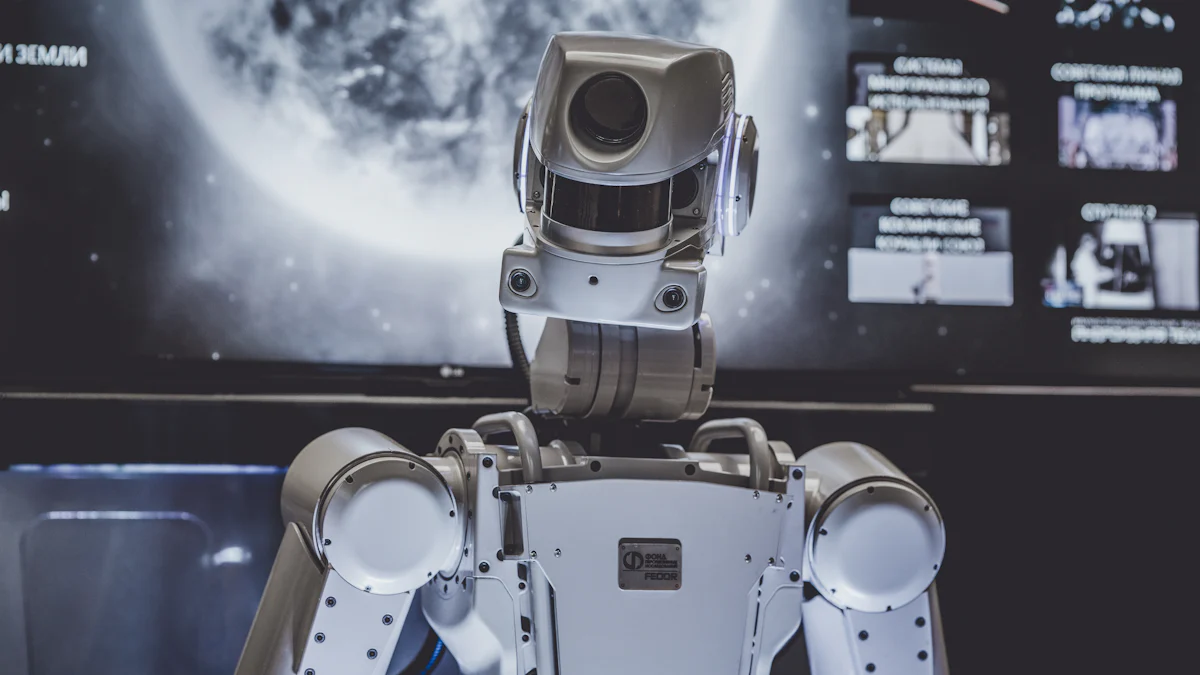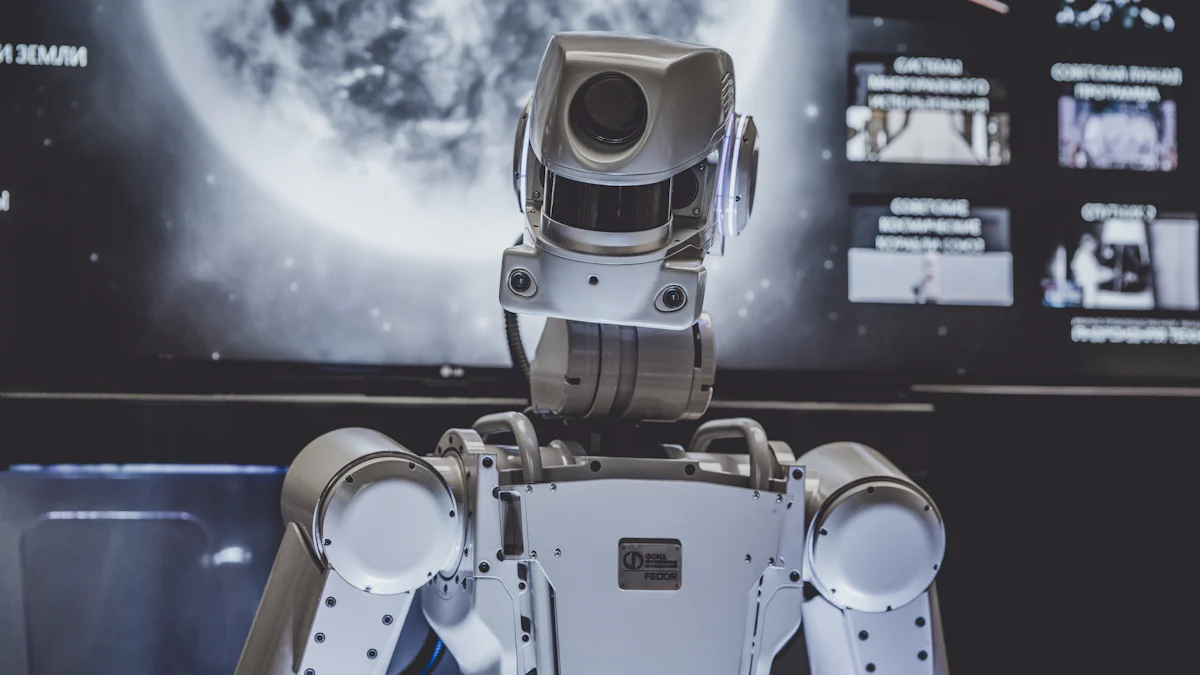
How AI is transforming healthcare services leads modern technology. It offers new solutions to many industries. In healthcare, AI is very important. It helps solve big problems in healthcare services. This blog will explore how AI changes healthcare. It looks at diagnostics, patient care, and administrative tasks. Additionally, the integration of AI in healthcare can also inspire Fitness Motivation by providing personalized health insights and recommendations.
The Role of AI in Diagnostics

AI helps make healthcare diagnostics better and faster. Using AI, doctors can get more accurate results quickly.
Enhancing Accuracy
AI in Radiology
- AI’s Impact on Radiology Diagnostics: AI helps radiologists diagnose illnesses faster and better. This means patients get treated sooner and feel better quicker.
AI in Pathology
- AI Algorithms in Medical Imaging: AI tools help doctors read medical images correctly. This makes sure patients get the right diagnosis fast, helping both them and their doctors.
Speeding Up Diagnosis
AI Algorithms for Rapid Analysis
- AI’s Role in Diagnosing Breast Cancer: Using AI for breast cancer checks has cut down wrong results by 5.7% for false positives and 9.4% for false negatives. This shows how good AI is at finding breast cancer.
Real-time Data Processing
- AI in Early Disease Detection: AI can find diseases early by looking at medical images very accurately, sometimes even better than human experts. This shows how important AI is for health checks.
Case Studies
Successful AI Diagnostic Tools
- AI algorithms can process large amounts of data quickly, making diagnoses faster and more accurate in hospitals.
- Expedited treatment initiation because of correct diagnoses with the help of AI shows its positive effect on patient care.
Patient Outcomes
- AI is advancing patient safety by looking at data to give insights, improve decisions, and make health outcomes better in hospitals.
- Adding AI to diagnostics can greatly improve patient care, cut down mistakes, and make healthcare services better overall.
AI in Treatment and Patient Care

AI is changing how we treat patients. It makes care better. AI helps doctors give personal medicine and new ways to keep people healthy.
Personalized Medicine
In genomics, AI changes how we make treatment plans. It looks at genetic data to find patterns. This helps doctors create the best treatments for each person.
AI in Genomics
- AI helps doctors study genes deeply. They can find disease-related genes. This leads to personal treatments.
Tailored Treatment Plans
- AI lets doctors customize treatments based on genetics. This means better results and fewer side effects.
Robotic Surgery
Robotic surgery with AI brings precise and small cuts. This makes surgeries safer and recovery faster.
Precision and Minimally Invasive Procedures
- AI robots are very accurate in surgery. They lower human mistakes, making surgeries better and recovery quicker.
Examples of AI-assisted Surgeries
- Many success stories show how good AI surgeries are. From brain to bone surgeries, they improve safety and accuracy.
Virtual Health Assistants
Virtual health helpers with AI change how patients talk to doctors and get monitored from afar, making healthcare easier to access.
AI Chatbots for Patient Interaction
- AI chatbots give quick medical info anytime. They help patients stay engaged and get fast answers.
Remote Monitoring and Telehealth
- With remote monitoring by AI, doctors can watch patients’ health from far away. This helps catch problems early, especially for chronic illnesses, ensuring ongoing care.
AI in Healthcare Administration
AI helps make healthcare administration better by improving operations and keeping data safe.
Making Operations Smoother
AI in Scheduling and Resource Management
- Better Efficiency: AI makes hospital work faster, cutting wait times and using resources well.
- Automated Tasks: Routine jobs are done by AI, so staff can care for patients more.
Reducing Administrative Workload
- Improved Workflow: By doing routine tasks, AI lightens the load on staff, making things run smoother.
- Optimized Hospital Functions: With AI, hospitals work better and give better patient services.
Keeping Data Safe
AI in Cybersecurity
- Predicting Patient Outcomes: Johns Hopkins Hospital uses Microsoft Azure AI to predict how patients will do with treatments.
- Better Patient Care: Using AI for cybersecurity keeps patient info safe, leading to better health outcomes.
Protecting Patient Information
- Ensuring Privacy: AI keeps patient data private, building trust in healthcare systems.
- Optimizing Healthcare Workflows: Data safety with AI protects sensitive info, making healthcare services better overall.
Case Studies
Hospitals Using AI Solutions
- Johns Hopkins Hospital Case: Working with Microsoft Azure AI showed how predictions can improve patient care and results.
- Efficiency Gains: Hospitals using AI have less waiting time and smoother workflows for better efficiency.
Efficiency Gains
- Streamlined Processes: Routine jobs done by AI lead to better resource use and fewer delays.
- Optimized Workflows: Adding AI makes hospital work more efficient, helping both staff and patients.
Ethical and Regulatory Considerations
Ethical Implications
Bias in AI Algorithms
- Bias Detection: Finding biases in AI is crucial. It ensures fair healthcare for all. Fixing these biases helps everyone get equal treatment.
- Fairness in Decision-Making: Making sure AI decisions are fair is important. This means everyone gets the same quality of care, no matter who they are.
Ensuring Fairness and Equity
- Collaborative Efforts: Doctors, data experts, and leaders must work together. They need to set rules that make AI fair for everyone.
- Equitable Healthcare Delivery: Following ethical rules makes sure AI helps all patients equally. This benefits people from different backgrounds.
Regulatory Challenges
Compliance with Healthcare Regulations
- Regulatory Adherence: Following healthcare laws is key. It keeps patient rights safe and makes sure AI works properly in medicine.
- Legal Frameworks: Clear laws protect patient data privacy. They also keep healthcare practices ethical when using AI.
Future of AI Regulation in Healthcare
- Flexibility in Regulation: Flexible rules help as technology changes. This keeps AI useful and safe in healthcare.
- Continuous Evaluation: Regularly checking AI rules is needed. It helps fix new problems and use new tech better.
AI is changing healthcare by providing new solutions. AI can greatly improve patient care and outcomes. It helps doctors understand data better and make good decisions. AI makes patients safer by looking at data for insights. If we manage risks, AI can help everyone in hospitals. Using AI more could let doctors give better care to patients everywhere. It also saves a lot of money each year.
For More Ai and Chatgpt News Visit Ai News Updates
 Press Coffee
Press Coffee